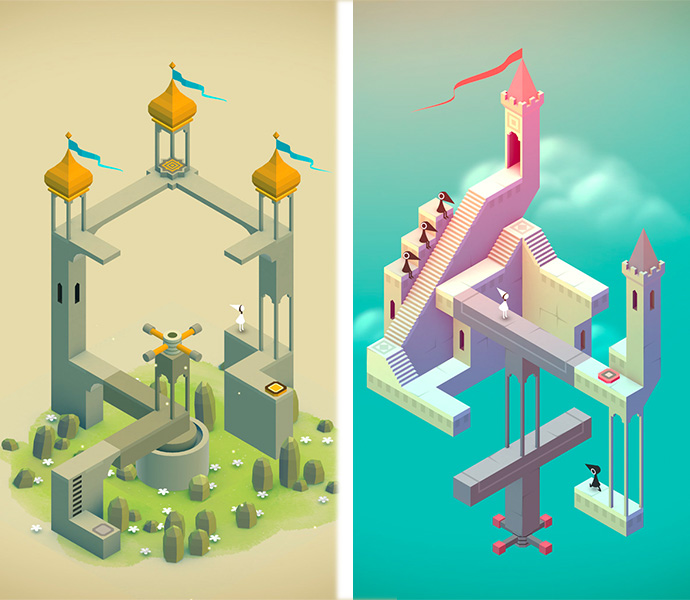GamesBeat: Game Show Network’s Steve Meretzky told me that was something they’d tried with their casino games at GSN. Before they’d just had a collection of games without a metagame. Now they’ve launched a new version where they concentrated on making the metagame stronger. It ties in to retention and loyalty.
Lyndon: That’s going to be the key. It gives you the content to keep your game alive. A core game mechanic isn’t enough to sustain you.
Another thing we’ve recently found about the difference between Chinese gamers and Western gamers is that Western gamers will usually have multiple genres of interest, maybe two or three. It’s rare to find a gamer who’ll only play FPS. But in China, the way Chinese users are growing is very awkward. They have a very clear preference. “I’m an RPG gamer. I only play RPGs.” A Western RPG gamer will usually be interested in, say, FPS and TCG as well, because they identify generally as a hardcore gamer. Chinese hardcore gamers are divided up into a bunch of subsets – hardcore RPG gamers, hardcore FPS gamers – who only play their genre of choice.
With that kind of growth, it makes the market even more singular and even more competitive. A lot of Western gamers aren’t capable of competing there. I’m finding a lot of developers outside the Chinese market having trouble with that.
GamesBeat: I heard from someone at a top game company in mobile – I can’t say who – that they believe everything is just locked up now in mobile gaming. He was referring to the West primarily. In console, Call of Duty comes out every year and makes a billion dollars. It’s hard to knock Call of Duty out of No. 1. The charts don’t change from year to year. He was saying that the same thing is happening with Clash of Clans and Game of War and Candy Crush in mobile. That chart doesn’t change because those guys have enough ad-buying power to drive cost per installs (CPIs) to a point where nobody else can break in. Only a viral game can make it to the top, like Trivia Crack. Nothing breaks into the top-grossing list because when those guys see something coming, they just buy up all the inventory.
It seems very anticompetitive, but maybe it creates opportunities as well. Maybe they’re overconfident. And advertising revenue is now becoming a better opportunity for smaller game companies. They’re creating something that can sustain their competitors by driving up ad rates. I don’t know what you think, but it almost seems like the U.S. is all wrapped up at the moment.
Lyndon: I can see that happening in the U.S. because the U.S. has just the two platforms, Android and iOS. On iOS, I can see that happening in China, but it would be harder to do. On the Android side, you have so many platforms that it’s much, much harder. If you dominate even one platform, it’s because you have a close relationship with that platform, and that pushes you away from other platforms. Not many games on Android in China have been consistently high in the ranks across multiple platforms, other than very casual games like Temple Run or Subway Surfer. When you look at the high-ARPPU stuff, it tends to be big in only one platform ecosystem.
That kind of lockup is going to be much harder to do in China until the platform situation stabilizes. We’re seeing a consolidation of app stores, but there’s still a good handful, 10 or 15 app stores to work with, and each of them still has the one big weapon in their arsenal. The ones that don’t have that are gone already.
GamesBeat: It almost seems like the U.S. needs more viable platforms.
Lyndon: Yes. But in the U.S., to build a new platform at this stage would be almost impossible.
GamesBeat: I wonder if companies need to think about this in how they develop their strategies. This person I talked to thought that most VC-funded startups are going to be falling short of their targets. They just can’t break in.
Lyndon: They are going to, yes.
GamesBeat: They can look for Chinese money after that, but that’ll dry up at some point as well.
Lyndon: Like I just said, I think we’ll see up to a 70 percent failure rate in China for a lot of these investments that happened in late 2013 and early 2014. These deals were just way too expensive. For companies like iDreamSky that got into the market early on, we were able to stack up money throughout this process. It’ll come down to a handful of companies.
We have two ways to go. One, we wait out the winter and then we go into a buying mode and recycle the scraps. Or we can look at doing deals outside of China. In Southeast Asia, I see a lot of things coming up. Thailand and Malaysia are showing strong growth. But it seems to present a similar situation to China – a very fragmented, multicultural, multicarrier world.
GamesBeat: What is iDreamSky’s own road map like right now?
Lyndon: We just signed Monument Valley. That’s our latest big addition for casual games. We have some big announcements coming up. We’ve started working on IP-based games, looking for the right [intellectual property] and marrying it with the right game mechanics.
One game that recently showed a lot of momentum is called Running Man. I’m not sure if you’re familiar with the Korean TV series, but it’s one of the biggest game shows in Korea. A Chinese TV broadcaster licensed it to create a Chinese version, and we licensed the IP to create the game. It’s doing very well on multiple charts, passing 10 million RMB in the first month.
We’re working on a lot of IP deals like that these days. We’re in the process of finding wWestern developers to work on this IP, helping them come into China in a more localized way. That’s one focus I have at this year’s GDC.
We’re also working with a couple of developers globally where — in earlier days, it was just about making a quality game. You could talk with the press a bit and get good word of mouth out there and you’d see revenue. But these days it’s all about having a UA war chest. We’re working with a couple of developers on funding their launch, helping them out with UA. If it works out we can continue to fund them to drive their business. We’re looking for developers who are capable of creating good games, who have their own operations capability, but just don’t have the UA war chest.
I see a lot of project financing happening these days. We’re aggressively looking to do that. It helps a lot of developers, to have their projects financed by a Chinese publisher. If you’re funded by a Western publisher, they don’t add that much beyond the money, because you can publish your game in the West yourself. If you’re funded by a Chinese or Asian publisher, it gives you that extra angle of equipping your game to be more ready for an Asian launch.
GamesBeat: Do you find there’s more competition in this space?
Lyndon: There’s competition, but iDreamSky is one of the top publishers in China. We’re definitely in the top five. We continue to be a leading player. There’s always going to be competition, but who provides more synergy?
iDreamSky also has a very unique capability that most publishers don’t have, our development capability. Not just development capability on a smaller scale, but on a larger scale. We can come in with unique technology that we’re using in Chinese games — bandwidth compression, Unity data size compression – that we’ve spent years refining. Other publishers simply don’t have that. Also, because of our gigantic registered user base – more than 500 million now – the user behavior tracking we can do is second only to Tencent. We can tell you, scientifically, why a certain function might not work.
In terms of cash, project financing isn’t in the tens of millions. We’re looking at somewhere around $1 million or a bit above. Your million dollars is the same as my million dollars. What it really comes down to is the kind of synergies we bring in. We have a much harder edge we can provide compared to a lot of other Chinese publishers doing project financing outside of China.
VentureBeat's mission is to be a digital town square for technical decision-makers to gain knowledge about transformative enterprise technology and transact. Learn More





